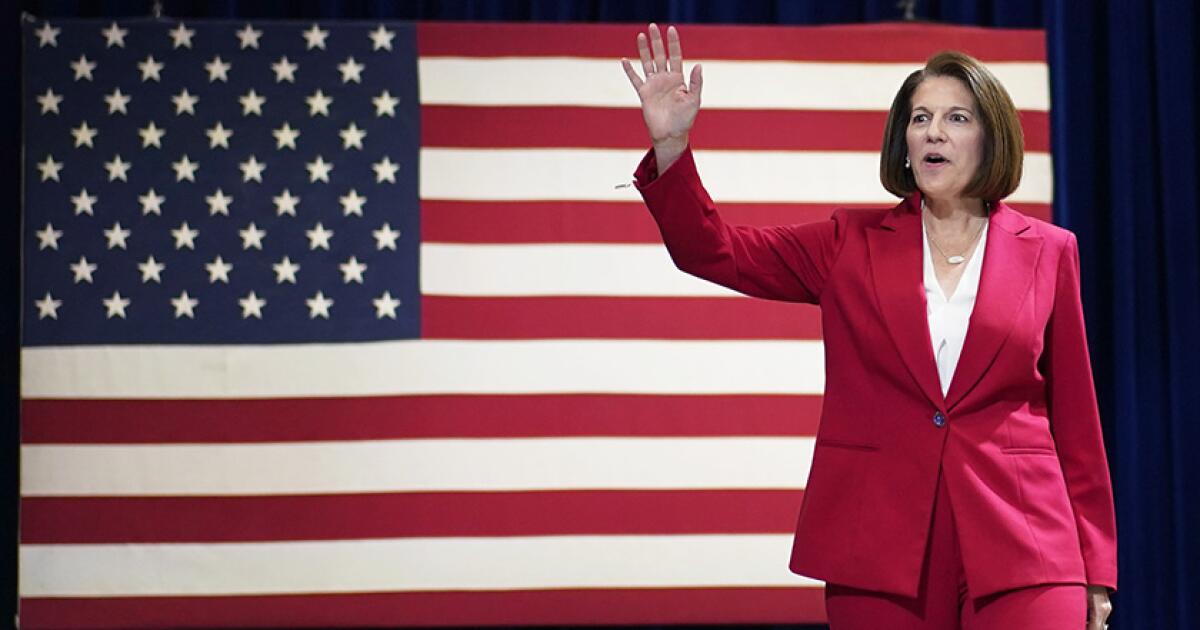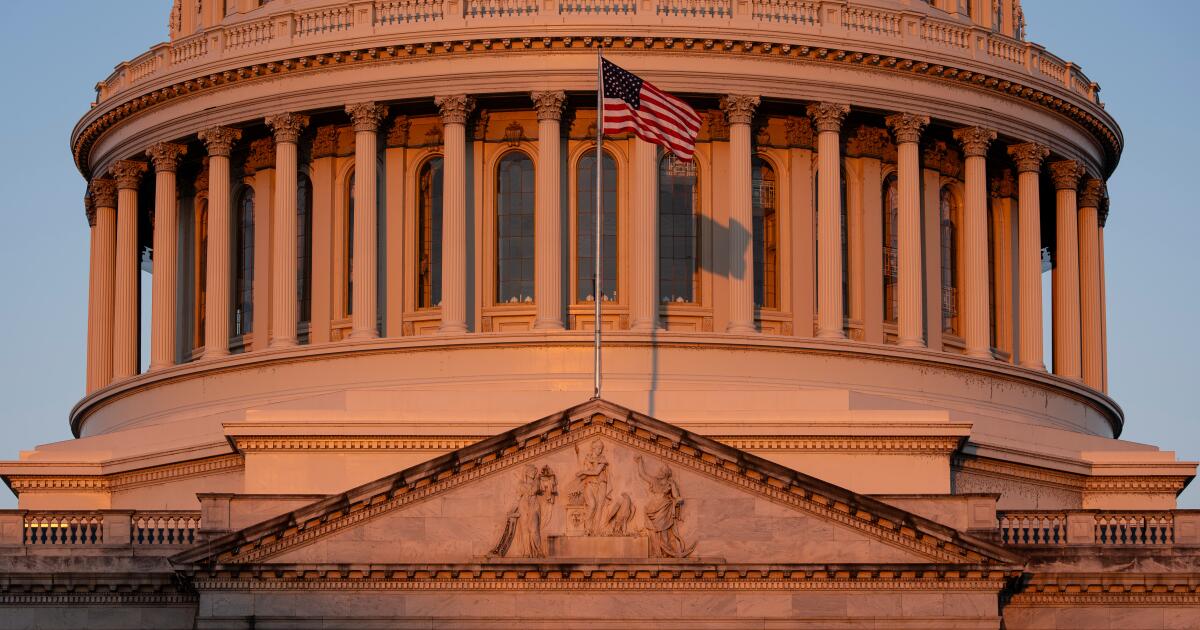Nevada senator explains break with fellow Democrats on shutdown
As the partial government shutdown grinds on, with no end in sight, Catherine Cortez Masto stands ready to end it right now.
The lawyerly senator from Nevada is one of just two Democrats to repeatedly vote with Republicans and Maine’s independent senator, Angus King, to have the federal government up and running.
She’s not only bucking her Senate colleagues with her contrarian stance, but also placing herself squarely at odds with the animating impulse of her party’s political base: Stop Trump! Give no quarter! Now is the time! This is the fight!
Cortez Masto evinces not a flicker of doubt.
“I have been very consistent about the cost of a shutdown and the impact to Americans and the fact that I believe we need to work in a bipartisan way to find solutions to what we’re seeing right now, which is this looming healthcare crisis,” Cortez Masto said from Washington.
“And I think we can do that by keeping the government open. I don’t think we should do it by swapping the pain of one group of Americans for another.”
Unlike the Democrats’ other defector, Pennsylvania’s quirky Sen. John Fetterman, Cortez Masto hasn’t developed a reputation for partisan heresy, or antagonized party peers by playing footsie with President Trump and the MAGA movement.
Despite her temporary alliance with the GOP, she’s unstinting in her criticism of the president and the Republican stance on healthcare, the issue at the heart of the shutdown fight.
“Of course we need to stand up to Trump’s attacks on our families and our country,” she said. “I’ve been one of the most vocal opponents of Trump’s disastrous trade and tariff policies.”
Her split with fellow Democrats, she suggested, is not over ends but rather means.
It’s entirely possible, Cortez Masto insisted, to keep the government open for business and, at the same time, work through the parties’ differences over healthcare, including, most imminently, the end of subsidies that have kept insurance costs from skyrocketing.
It comes down to negotiation, trust and compromise, which in Cortez Masto’s view, is still possible — even in these rabidly partisan times.
“That’s what Congress is built on,” she said. “Congress is built on compromise, working together across the aisle to get stuff done. I still believe in it.”
Although she noted — with considerable understatement — “there are those in the administration and some of my colleagues” who disagree.
Not to mention a great many Democratic activists who believe anything short of jailing Trump and dispatching the entire GOP-run Congress to a far-off desert island amounts to cowardly capitulation.
Nevada, where Cortez Masto was born and bred, is a state that was Republican red for a very long time before turning blue-ish for a while, starting under Barack Obama in 2008. It went back to red-ish under Trump in 2024.
Cortez Masto, a former state attorney general, was first elected to the Senate in 2016, replacing the onetime Senate majority leader, Harry Reid, after the Democrat retired.
Six years later, when she sought reelection, Cortez Masto was widely considered Democrats’ most endangered incumbent. She was not nearly as powerful or prominent as Reid had been. Inflation was raging, and Nevada was still suffering an economic hangover from the COVID-19 pandemic.
Her opponent was a middling Republican, Adam Laxalt, a failed gubernatorial candidate and one of the architects of Trump’s Big Lie about the 2020 election. He also seemed to harbor a soft spot for the Jan. 6, 2021, rioters.
Still, Cortez Masto barely beat him, winning by fewer than 10,000 votes out of more than 1 million cast. In retrospect, the result could be seen as a harbinger of Trump’s success in carrying the state after twice losing Nevada.
Cortez Masto next faces reelection in 2028, which is politically ages away. By then, the shutdown will be long forgotten. (And presumably long over.)
Her focus, she said, is the here and now and, especially, the shutdown’s economic effect at a time Nevada is already feeling the negative consequences of Trump’s trade and immigration policies. Las Vegas, which runs on tourism, has experienced a notable slump, and Cortez Masto suggested the shutdown only makes things worse.
That, however, hasn’t deterred Nevada’s other U.S. senator, Jacky Rosen, who has repeatedly voted alongside nearly every other Democrat to keep the government shuttered until Republicans give in.
“Nevadans sent me here to fight for them,” Rosen said in a speech on the Senate floor. “Not to cave.”
Asked about the fissure, Cortez Masto responded evenly and with diplomacy. “She’s a good friend.… Our goal is to fight for Nevada and we are doing it,” she said. “We both are doing it in different ways.”
So, negotiation. Bipartisanship. Compromise.
What makes Cortez Masto think Trump, who’s run roughshod over Congress and the courts, can be trusted to honor any deal Democrats cut with Republicans to reopen the government and address the healthcare crisis she sees?
“Well, that’s the rub, right? We know what he’s doing,” she replied. He’s “flouting the law when it comes to … taking the role of legislators and appropriating funds at his own whim…. So, of course, no, you can’t trust him.
“But he is there. What you got to figure out is how you work together with Republican colleagues to get something done.”
Cortez Masto noted, dryly, that Congress is, in fact, a separate branch of government with its own power and authority. Republicans have ceded both to Trump and if they really want to solve problems, she said, and do more than the president’s bidding, they “need to come out and do bipartisan legislation to push back on this administration.”
“We’ve got to govern,” Cortez Masto said. “We’ve got to work together.”
Wouldn’t that be something.

